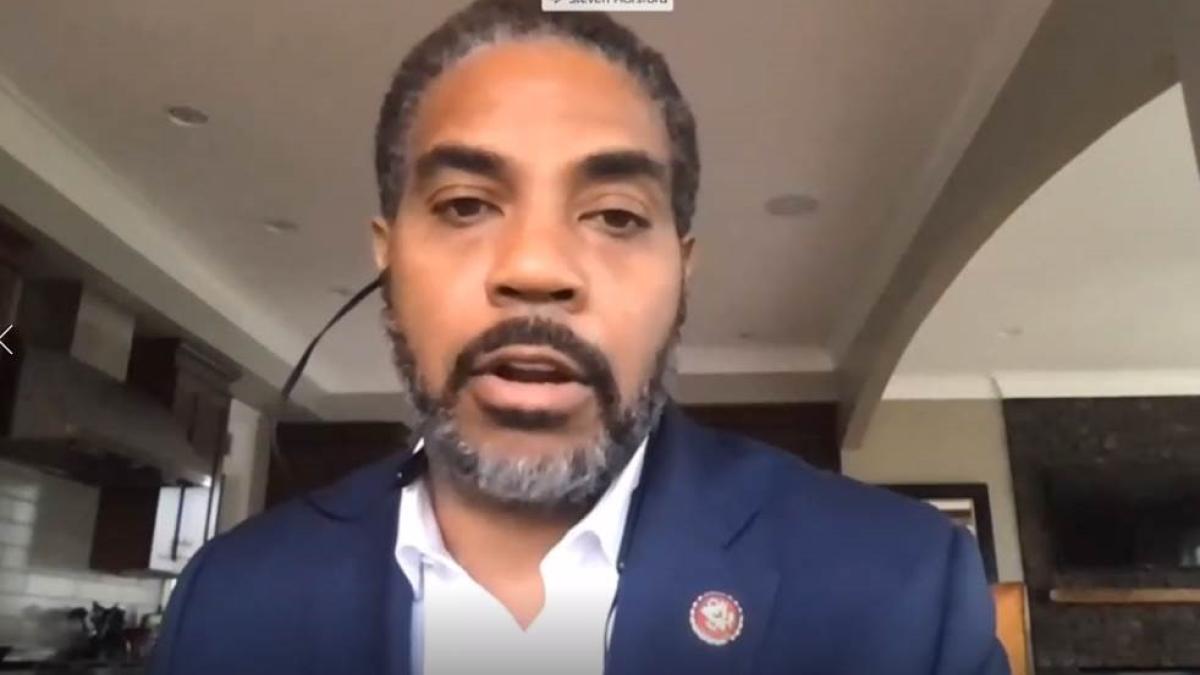Congressman Steven Horsford Highlights Disparities in COVID-19 Economic Impact

Las Vegas, Nev. -- Today, Congressman Steven Horsford (NV-04) took part in a virtual hearing with the House Budget Committee, "Health and Wealth Inequality in America: How COVID-19 Makes Clear the Need for Change," examining how the COVID-19 pandemic has exacerbated America's underlying health and economic inequalities.
"Nevada is the hardest hit state economically in our nation and has the worst unemployment rate as a result of the coronavirus pandemic. However, prior to the COVID-19 pandemic, economic inequality already plagued our communities: In 2018, the poverty rate for African American families was more than two and a half times the poverty rate for whites. And the poverty rate for Latinx families was more than twice that of whites," Congressman Horsford said. "The public health and economic crises brought on by COVID-19 have exacerbated underlying health and economic inequalities and we must work toward policies that would help fix our systems so we can better prepare our nation for a stronger future for our children."
The Committee heard from expert witnesses and discussed policy options to address inequities across communities and better prepare our nation for a stronger future with more broadly shared prosperity.
The Congressman's prepared remarks and line of questioning can be read below:
Thank you, Mr. Chairman for holding this hearing today. Thank you also to our panelists for joining us today. Your expertise and insight have been invaluable to today's discussion.
Dr. Patrice Harris it is good to see you again. I appreciate everything you have done at the American Medical Association this past year. As you all may be aware, Nevada is the hardest hit state economically in our nation and has the worst unemployment rate (25.2 percent) as a result of the coronavirus pandemic.
Few places were hit harder than Las Vegas, where a full one-third of the local economy is in the leisure and hospitality industry, more than in any other major metropolitan area in the country. Most of those jobs cannot be done from home.
The New York Times did an article back in April titled "How Las Vegas Became Ground Zero for the American Jobs Crisis." And they brought to light the devastating impacts this virus has on African American families in Southern Nevada.
The article highlighted how Mr. and Mrs. Anderson both lost their jobs at a restaurant and call center, respectively, and immediately began to worry about how they would pay rent and provide food for their daughter. This is one of many examples as to how COVID-19 has dramatically African American households.
In 2018, the poverty rate for African American families was more than two and a half times the poverty rate for whites. And the poverty rate for Latinx families was more than twice that of whites.
Disparities in the child poverty rate are even more stark: The child poverty rate for African Americans in 2018 was more than three times the child poverty rate for whites, up from about two and a half times the rate for whites in 2013.
But none of this is a coincidence. The inequities we see today were not caused by COVID-19. COVID-19 has made it clear to all of us how our health, financial, educational, housing, and other institutions never provided much opportunities for EVERYONE in this country to thrive.
There is data I just saw yesterday from the Center on Poverty and Social Policy that indicates how the child poverty rate could be cut in half today if Congress approves the American Family Act, which expands the child tax credit that would provide $3,600 for kids under 6 years of age and $3,000 for older kids.
The poverty rate amongst Black children would drop by 52 percent! The poverty rate amongst Latinx children would drop by 41 percent! This is one way we can address systemic issues right now and give our children the opportunities they deserve.
To Dr. Harris or Dr. Jones, what long-term effects might the COVID-19 pandemic have on children? How might it affect their physical and mental health, as well as their economic potential?
